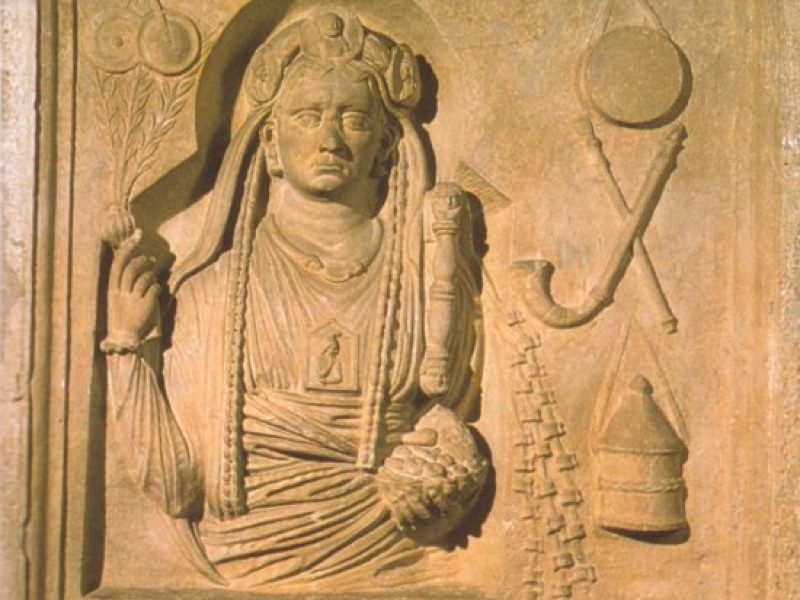Dionysiac Mysteries
Dionysia or the Dionysiac Mysteries was established throughout the Greek world. Dionysus (Διόνυσος) was the Greek god of wine, and also the god of fertility, such as vegetation and the fruitfulness of the vine.
In the various sources of the Dionysus myths, the wine god had many followers, including satyrs, nymphs and women from the local communities.
The women followers were known as the Maenads or Μαινάδες "frenzied women" or Bacchants (or Bacchae) "women of Bacchus". They were represented in art as dressed in fawnskins and wearing wreaths around their heads. They also carried the thyrsi, a rod that might have ivy leaves or pine cones on one end that could be used as a weapon.
The followers were usually involved in drinking wine, singing (or howling like wild animals) and wild, ecstatic dancing. It is generally believed that part of the initiation to the cult involved sexual activity.
Dionysus' main role was that of a wine god. As we all know, excessive drinking removes inhibitions and causes drunkenness. Drunkenness was a sort of ecstatic madness.
Madness played a role in Dionysus' life, whether it was him who was suffering from it, because of his step-mother Hera, or him inflicting it upon anyone who persecuted either him or his followers.
Those women who refused to join the revelry were punished, usually afflicted with madness, as in the case of Dionysus' aunts, or the daughters of Minyas.
The fathers and husbands were often distressed by the women's participation in the Bacchic rites, but they didn't interfere because of the fear of the god or the violence the women followers would commit, as it could be shown in several incidents in myths.
Some of the men killed were by the maenads, particularly Pentheus and Orpheus; they were torn to pieces. Men were also afflicted with madness, for those who tried to interfere. Dionysus might punish the men with impotency, which was what happened in Athens.
The fear of being punished with madness or being torn apart by followers was still in evidence during historical times in ancient Greece and the Hellenistic kingdoms.
(The tearing apart of the limbs of their victims had another special importance in the Orphic Mysteries. According to Orphic myth, Dionysus, or Zagreus as he was known to the Neoplatonists, was torn to pieces and devoured by the evil Titans. But Dionysus was reborn as the son of Semele. More details on this can be found in the Orphic Mysteries and the Orphic Creation pages.)
What is generally known about the Dionysiac Mysteries are the famous festivals, such as the Great Dionysia, Little or Rustic Dionysia, Oschophoria and the Anthesteria. These festivals usually involved wine drinking, sexual orgies and choral singing. At first, these festivals were only participated in by the initiated, but later they were open to all people.
See Greek Festivals, Thesmophoria for a brief description of the festival.
The Romans called the Dionysiac cults, Bacchanalia, and the Romans called the wine god Bacchus or Liber. The cult was brought to Rome from the Greek colonies in southern Italy.
When these cults became public, the Romans were so shocked by the drunken revelry and the orgies that were held at the festivals that the Roman Senate tried to have them banned.
By Jimmy Joe





